Last updated on August 1, 2025
If you’ve ever wondered why some Noiler farmers in Nigeria seem to always have money for new chicks, better feed, or even a new motorcycle—while others are stuck in a cycle of losses—this article is for you. Profit in Noiler farming isn’t about luck or having the biggest farm. It’s about making smart, sometimes small, changes that add up to real results.
I’ve spent years visiting farms, running my own flocks, and talking to both struggling and successful Noiler farmers. The difference? The most profitable farmers don’t just work harder—they work smarter. Here are seven strategies I’ve seen transform ordinary Noiler farms into reliable, money-making businesses.
Quick Reference Table: 7 Profit-Boosting Moves for Noiler Farmers
| Move | What to Do | What You Gain |
|---|---|---|
| 1. Hatch with the Best | Buy only from trusted hatcheries, check for vaccination | Fewer losses, faster growth |
| 2. Feed for Results | Match feed to age, use local supplements wisely | Lower costs, better weight gain |
| 3. Keep Sickness Out | Tighten biosecurity, act fast on illness | Healthier flock, less risk |
| 4. Sell Smart, Not Just Fast | Build direct buyers, time sales for holidays | Higher prices, repeat customers |
| 5. Track Every Naira | Record all costs and sales, review monthly | Know your real profit, spot leaks |
| 6. Use Every Output | Sell eggs, manure, and even feathers | Extra income, less waste |
| 7. Learn, Adapt, Repeat | Try new ideas, join groups, ask questions | Stay ahead, avoid old mistakes |
1. How Do You Start Strong? (Quality Chicks Are Your Profit’s Foundation)
Starting with healthy, high-quality chicks from a reputable hatchery is the single best way to set your Noiler farm up for profit.





As Dr. Ayoola Oduntan, Group Managing Director of Amo Farm Sieberer Hatchery, puts it:
“The foundation of a profitable poultry business is healthy, high-quality chicks. If you start with poor stock, you will spend more on feed and medication, and your losses will be higher.”
(The Guardian Nigeria, 2022)
Don’t just trust a seller’s word—ask for proof of vaccination and check for active, alert chicks. If you’re buying in bulk, visit the hatchery or ask for a video call to see the chicks before delivery.
If you’re starting small, consider teaming up with other farmers to buy a full carton from a reputable source and split the chicks.
I once lost nearly half a batch to early mortality because I tried to save money on chicks from an unverified supplier.


 🐓 Fast Growth Guide: How to Make ₦500,000 Monthly from Poultry Farming in Nigeria (The Exact Number of Chickens You Need!) →
🐓 Fast Growth Guide: How to Make ₦500,000 Monthly from Poultry Farming in Nigeria (The Exact Number of Chickens You Need!) →
Cheap chicks are never a bargain if you lose them before they grow.
Key takeaway:
Start with strong, healthy chicks—your entire profit depends on it.
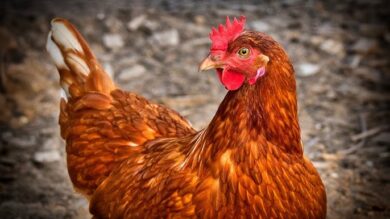
2. How Can You Feed Your Flock (and Your Bank Account) Wisely?
Feed is your biggest expense—smart feed management is the #1 way to boost Noiler chicken profitability.
Dr. Olufemi Oke, Chairman of the Poultry Association of Nigeria, says:





“Feed accounts for about 70 percent of the cost of poultry production in Nigeria. Farmers must focus on feed efficiency and avoid wastage to remain profitable.”
(BusinessDay Nigeria, 2023)
Don’t just buy the cheapest feed—buy the right feed for each stage. Chicks (0-4 weeks) need high-protein starter feed (20-22%), growers (5-8 weeks) need 16-18%, and finishers/layers (9+ weeks) need feed focused on weight gain or egg production.
If you’re mixing your own feed, get a tested formula from a reputable source or agricultural extension office.
If you have access to safe local ingredients (like boiled maize, cassava peels, or groundnut cake), use them to supplement—not replace—balanced feed.



- Use a feeding chart and weigh feed for accuracy.
- Supplement with safe local ingredients to cut costs, but never replace balanced feed entirely.
- Use feeders that minimize spillage. Every handful of wasted feed is money lost.
One farmer in Kwara State started mixing in sun-dried moringa leaves with his grower feed. His birds stayed healthy, and he cut his feed bill by 10% in one cycle.
Switching to a feeding chart and minimizing waste saved me over ₦30,000 per cycle.
Key takeaway:
Feed for each stage, supplement wisely, and minimize waste to protect your profit.
3. How Do You Prioritize Health for Profit?
A healthy flock is a profitable flock. Disease outbreaks can wipe out months of work and investment overnight.
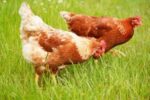



Dr. Elizabeth Ilori, Director of Livestock, Lagos State Ministry of Agriculture, emphasizes:
“Biosecurity is the cheapest and most effective way to prevent disease outbreaks in poultry. Simple measures like footbaths, restricting visitors, and regular cleaning can save farmers millions in losses.”
(Channels TV, 2021)
Don’t wait for birds to look sick—prevention is always cheaper than cure.
- Follow a strict vaccination schedule (consult your local vet for the right plan).
- Practice biosecurity: limit visitors, use footbaths, and quarantine new birds.
- Check your flock daily for signs of illness (lethargy, ruffled feathers, odd droppings).
- Keep litter dry and change it regularly to prevent coccidiosis and respiratory issues.
I once lost 20% of my flock to Newcastle Disease after skipping a scheduled vaccine. Vaccination and daily checks are non-negotiable for profit.



Key takeaway:
Prevention and daily health checks are your cheapest insurance.
4. How Do You Sell Smart, Not Just Fast?
Selling only through middlemen means you lose a big chunk of your profit. Building direct relationships with buyers and timing your sales for peak demand can double your margin.
- Sell directly to neighbors, restaurants, or local shops.
- Use WhatsApp, Facebook, or local groups to announce when you have birds or eggs for sale.
- Time your sales for holidays and festivals (Christmas, Easter, Salah/Eid al-Adha) when prices spike.
- Offer value-added products (smoked chicken, cuts, marinated meat) for higher prices.
A farmer in Ibadan started offering “pre-order” for Christmas birds in October. By December, every bird was sold before it left the farm—and at a 20% higher price than the market average.
The best price goes to the farmer who controls their own sales.
Key takeaway:
Direct sales and timing can double your profit per bird.



5. How Do You Track Every Naira?
If you don’t know your real costs, you’re guessing at your profit. I’ve met farmers who thought they were making money—until they added up all their feed, medicine, and labor costs.
Dr. Olabode Adetoyi, former Commissioner for Agriculture, Ekiti State, says:
“Record-keeping is not just for big farms. Every poultry farmer should know their cost per bird, per egg, and per batch. This is the only way to know if you are making or losing money.”
(The Nation Nigeria, 2022)
- Use a notebook, spreadsheet, or even a simple phone app to record every expense and sale.
- Review your records monthly. Look for patterns: Are you spending more on feed than you expected? Are some sales channels more profitable than others?
- Calculate your profit per bird, per egg, and per batch.
- If you’re not sure how to start, ask a local extension officer or join a WhatsApp group for poultry farmers.
One farmer I know started tracking every bag of feed and every egg sold, and within two months, he realized he was underpricing his eggs and losing money. What you don’t track, you can’t improve.



Key takeaway:
Track every cost and sale—know your real profit.
6. How Do You Use Every Output for Extra Income?
Noiler chickens are dual-purpose for a reason. Many farmers focus only on meat and forget that eggs, manure, and even feathers can add to their bottom line.
Dr. Ayoade Akinola, Poultry Consultant, Ibadan, notes:
“Farmers who add value to their poultry products—by processing, packaging, or selling eggs and manure—are more resilient to market shocks and make more money in the long run.”
(Punch Nigeria, 2023)
- Keep some hens for eggs, even if meat is your main business. Noiler eggs are popular in local markets and with health-conscious buyers.
- Sell manure to local crop farmers or gardeners. Composted chicken manure is in high demand and can fetch ₦500–₦1,000 per bag.
- If you process birds yourself, save feathers for pillow makers or local artisans.
- Even eggshells can be dried and sold as calcium supplement for other farmers.
A small farm in Ogun State started bagging and selling manure to vegetable growers. In one year, manure sales covered the cost of all their chick purchases. Every output from your flock can be a source of income.
Key takeaway:
Don’t leave money on the table—use every output for extra profit.
7. How Do You Learn, Adapt, and Repeat for Long-Term Profit?
The most profitable Noiler farmers are always learning. They attend local trainings, join WhatsApp groups, and aren’t afraid to try new ideas on a small scale.
- Join a local poultry association or online group.
- Attend at least one training or workshop per year.
- Try new feed mixes, housing designs, or sales strategies with a small batch before scaling up.
- Ask questions—successful farmers are usually happy to share what works (and what doesn’t).
- If you hear about a new vaccine, feed, or market, don’t dismiss it—ask for results and try it with a few birds first.
When I started, I thought profit was all about selling more birds. But the real change came when I started tracking every expense, switched to stage-specific feed, and built a WhatsApp group for direct sales. My losses dropped, my sales price went up, and I finally felt in control of my farm’s future.
The biggest leap in profit came from small, smart changes—not from working harder.
Key takeaway:
Never stop learning—adaptation is your best long-term strategy.
Case Study: How One Farmer Doubled Profit by Selling Manure
Mrs. Okafor in Anambra State used to throw away her chicken manure, thinking it was just waste. After attending a local extension workshop, she started bagging and selling composted manure to vegetable farmers at ₦800 per bag. In her first year, she sold over 200 bags—enough to pay for all her chicks the next cycle.
Turning “waste” into a product doubled her profit margin.
Key Takeaways
- Start with strong, healthy chicks from reputable hatcheries.
- Feed for each stage, supplement wisely, and minimize waste.
- Make biosecurity and daily health checks a habit.
- Build your own market and time your sales for peak demand.
- Track every cost and sale—know your real profit.
- Use every output: eggs, manure, and more.
- Keep learning, adapting, and improving.
FAQ
Is Noiler chicken profitable?
Yes, with smart management and the right strategies, Noiler farming can be reliably profitable in Nigeria.
How do I find direct buyers for my Noilers?
Start with friends, family, and local shops. Use WhatsApp or Facebook to announce when you have birds or eggs for sale. Offer pre-orders for festive periods.
What’s the best way to reduce feed costs?
Use stage-specific feed, supplement with safe local ingredients, and minimize waste with good feeders.
How much profit can I expect per bird if I avoid these mistakes?
On average, well-managed Noiler farms in Nigeria report profits of ₦1,500–₦3,000 ($1–$2) per bird, depending on feed prices and market timing.
What’s the biggest mistake new Noiler farmers make?
Not tracking costs and sales, and selling only through middlemen.
How do I keep my flock healthy without spending a fortune on drugs?
Focus on prevention: buy quality chicks, vaccinate, practice biosecurity, and keep water/feed clean.
Can I really make money from manure or eggs?
Yes! Many small farms cover their chick or feed costs just from manure and egg sales.
How do I know if my feed is good quality?
Check for a fresh smell, no mold, and a consistent texture. If birds refuse feed or growth slows, test a new batch.
What’s the best way to handle sudden disease outbreaks?
Isolate sick birds immediately, consult a vet, and review your biosecurity and vaccination records.
Conclusion
Profit in Noiler farming isn’t about luck or having the biggest farm. It’s about making smart, sometimes small, changes that add up to real results. Start with quality chicks, feed for results, keep your flock healthy, build your own market, track every naira, use every output, and never stop learning. That’s how you turn hard work into real, lasting profit.
If you have a question or want to share your own tip, drop it in the comments below. Let’s help each other succeed!
Recommended Reading / Next Steps
- 13 Hidden Disadvantages of Noiler Chickens — Learn the risks and how to solve them.
- How to Make Noiler Grow Fast — Proven strategies for faster, healthier growth.
- Is Noiler Chicken Profitable in Nigeria? — Real cost and income breakdowns.
- Forget Drugs: How to Keep Your Noilers Naturally Healthy & Profitable — Natural health management for your flock.
- Noiler Chicken vs Broiler Chicken — Full comparison of breeds for Nigerian farmers.
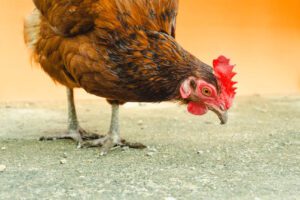
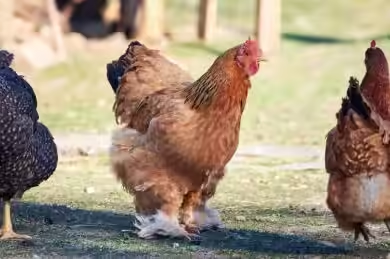
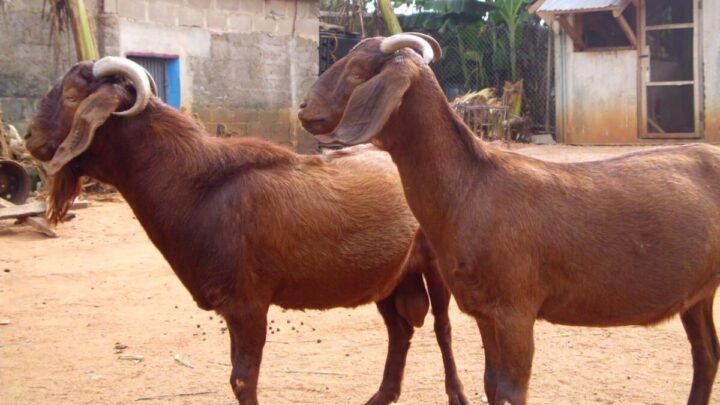
This is very educating. Thank you and well done 👍.
Thank you
Really educative
thanks
l am interested in breeding molar chicken.
I am interested in breeding Nolar chicken layers.
Great choice, Noiler chicken is the best dual purpose you can consider for the best profitability
I am interested in Brahma chickens